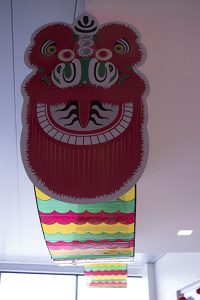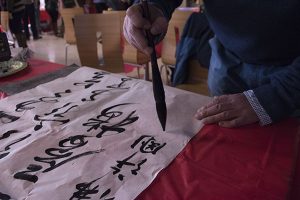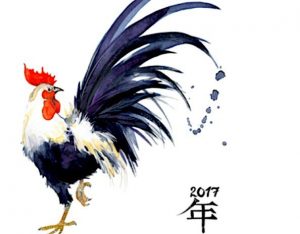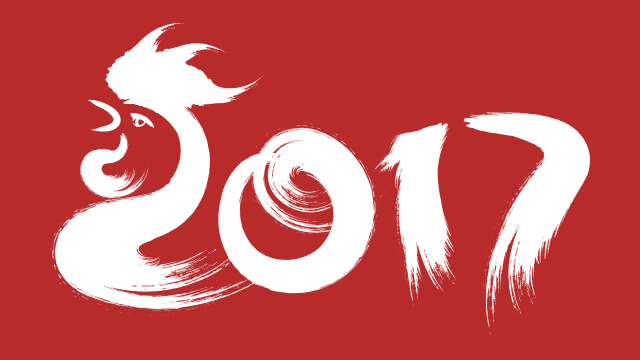The Year of the Fire Rooster
Written & Photographed by: Kylie Henson
 On Wednesday, February 1st, Metropolitan State University of Denver hosted the Chinese New Year Celebration for 2017. The event was held in the Student Success Building on the Auraria campus. Students, Faculty, & Staff came together to explore elements of the Chinese culture.
On Wednesday, February 1st, Metropolitan State University of Denver hosted the Chinese New Year Celebration for 2017. The event was held in the Student Success Building on the Auraria campus. Students, Faculty, & Staff came together to explore elements of the Chinese culture.
Each area of the venue covered a different aspect of the culture. In one area, participants could indulge in the traditional Chinese cuisine. The dishes ranged from delectable egg rolls to savory Beijing beef. Another area was designed to let students experiment with ink and Chinese calligraphy. This practice was led by a Community College of Denver visiting staff member, Gang Xi. Along with the calligraphy table, there was also a mask making table and a traditional Chinese painting practice table.
Collaboratively, each piece of the event created an experience that was unforgettable. Since we are staring the year of the fire rooster, it is important to understand what this symbolizes in Chinese culture.
The rooster is almost the epitome of fidelity and punctuality. For ancestors who had no alarm clocks, the crowing was significant, as it could awaken people to get up and start to work. In Chinese culture, another symbolic meaning of chicken carries is exorcising evil spirits. Along with the rooster, each Chinese New Year a new element is also selected as a pair to the animal. The cycle is similar to the way each animal is chosen; in other words an element and an animal are cycled through each year. With this in mind, the “Fire Rooster” is symbolic of holding a strong sense of time and being trustworthy, as well as it is said to be good at saving money. 
The Chinese New Year is a unique event that is celebrated in the Chinese culture. In fact, it is known as one of the most important holidays in China. The day is celebrated on the first day of the first month according to Chinese calendar and is also known as Lunar New Year. The day is rooted in centuries old customs and traditions and is one of the most popular public holidays in China.
Although we all have different cultures, celebrating our these cultures in solidarity with each other can help to build stronger communities.

